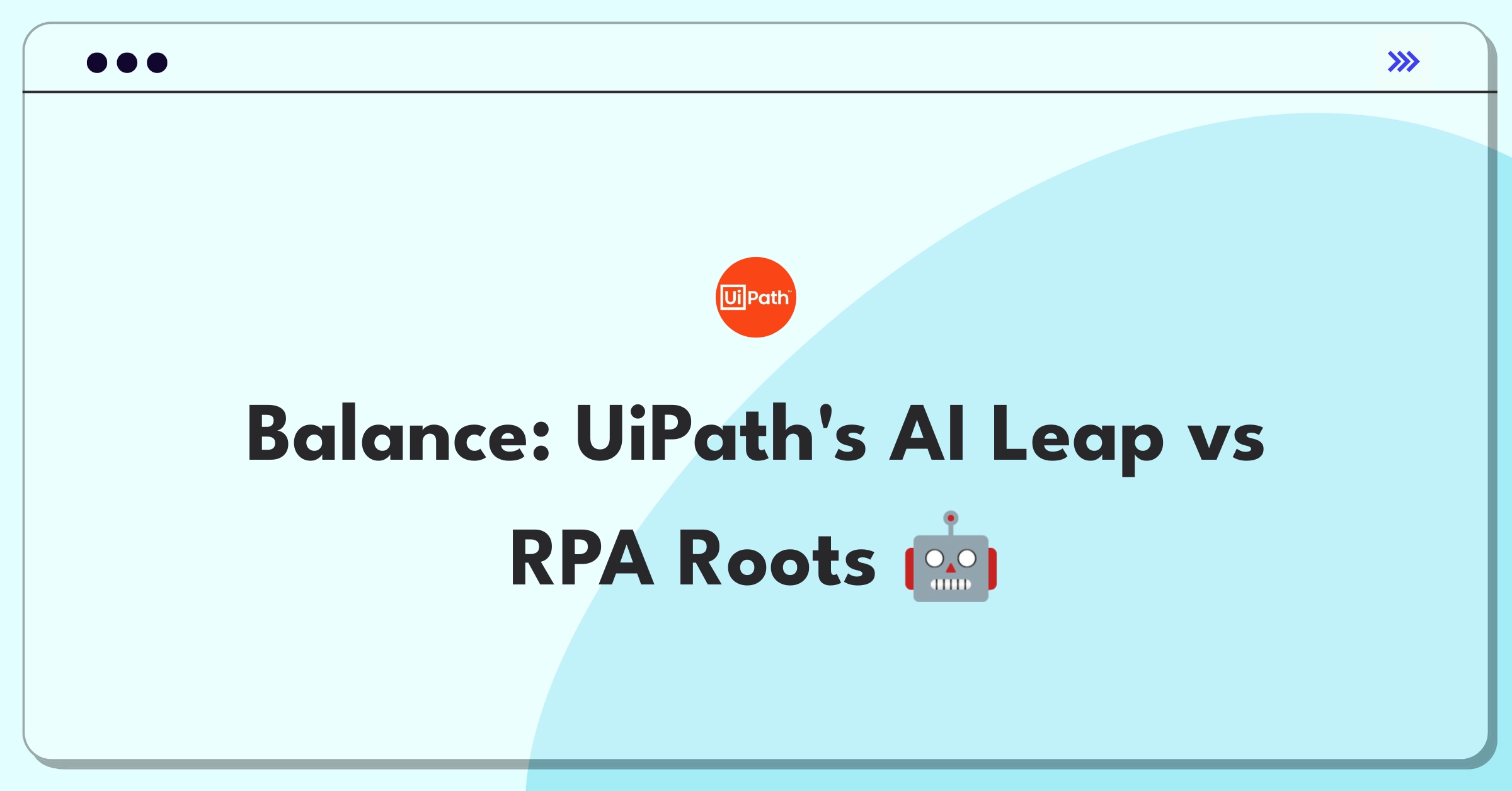Introduction
The trade-off between investing in AI-driven automation capabilities or enhancing core RPA functionalities is a critical decision for UiPath's product strategy. This scenario involves balancing innovation with core product improvement, potentially impacting UiPath's market position and long-term growth. I'll analyze this trade-off by examining the product context, stakeholder impacts, and potential outcomes to provide a strategic recommendation.
Analysis Approach
I'll use a structured framework to evaluate this trade-off, considering business objectives, user needs, technical feasibility, and market trends. My goal is to provide a data-driven recommendation that aligns with UiPath's strategic goals.
Step 1
Clarifying Questions (3 minutes)
Why it matters: Helps assess the urgency of AI investment versus core RPA improvements Expected answer: AI is becoming a key differentiator, but we still lead in core RPA Impact on approach: Would influence the balance between innovation and core product focus
Why it matters: Ensures the solution addresses the needs of our most valuable customers Expected answer: Enterprise clients are primary, with increasing demand for AI integration Impact on approach: Would prioritize features that cater to enterprise-scale automation needs
Why it matters: Indicates market readiness and potential ROI for further AI investment Expected answer: Moderate adoption with high interest, some integration challenges Impact on approach: Would inform the level of resources allocated to AI development and education
Why it matters: Assesses the realistic timeline and resource requirements for AI development Expected answer: Strong foundation, but need for specialized AI talent and infrastructure Impact on approach: Would influence the phasing of AI feature rollout and resource allocation
Why it matters: Helps balance resource allocation between innovation and core product maintenance Expected answer: Trade-off in short-term, potential for long-term efficiency gains Impact on approach: Would shape the strategy for team structure and project prioritization
Subscribe to access the full answer
Monthly Plan
The perfect plan for PMs who are in the final leg of their interview preparation
$99 /month
- Access to 8,000+ PM Questions
- 10 AI resume reviews credits
- Access to company guides
- Basic email support
- Access to community Q&A
Yearly Plan
The ultimate plan for aspiring PMs, SPMs and those preparing for big-tech
$99 $33 /month
- Everything in monthly plan
- Priority queue for AI resume review
- Monthly/Weekly newsletters
- Access to premium features
- Priority response to requested question


.png)